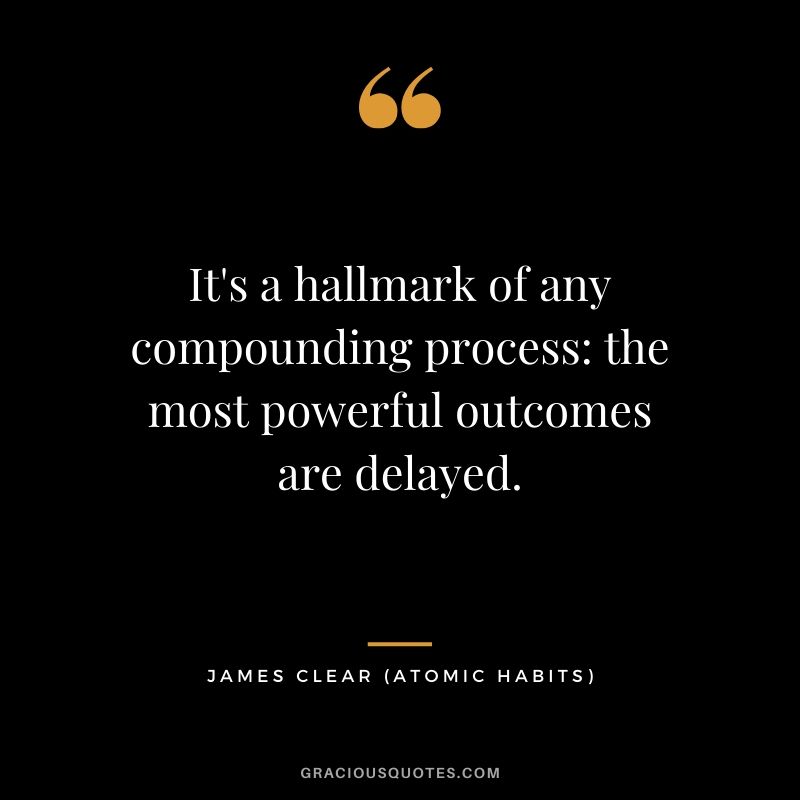

Your actions reveal your true motivations. It’s time to have an honest conversation with yourself. If you keep saying something is a priority but you never act on it, then you don’t really want it. Your actions reveal how badly you want something. You don’t have to be the victim of your environment. You do not rise to the level of your goals. You can be satisfied anytime your system is running. When you fall in love with the process rather than the product, you don’t have to wait to give yourself permission to be happy. With identity-based habits, the focus is on who you wish to become. With outcome-based habits, the focus is on what you want to achieve. When you can’t win by being better, you can win by being different.

We imitate the habits of three groups in particular: The close. It’s something very different to say I’m the type of person who is this. It’s one thing to say I’m the type of person who wants this. The ultimate form of intrinsic motivation is when a habit becomes part of your identity. Ultimately, it is your commitment to the process that will determine your progress. Success is the product of daily habits-not once-in-a-lifetime transformations. It is about the cycle of endless refinement and continuous improvement. It’s not about any single accomplishment. True long-term thinking is goal-less thinking. The purpose of building systems is to continue playing the game. The purpose of setting goals is to win the game. The more pride you have in a particular aspect of your identity, the more motivated you will be to maintain the habits associated with it.

And as our habits become ordinary, we start derailing our progress to seek novelty. We get bored with habits because they stop delighting us. The greatest threat to success is not failure but boredom. Some people spend their entire lives waiting for the time to be right to make an improvement. Once your pride gets involved, you’ll fight tooth and nail to maintain your habits. We are so focused on figuring out the best approach that we never get around to taking action.Īs Voltaire once wrote, The best is the enemy of the good. The Diderot Effect states that obtaining a new possession often creates a spiral of consumption. In fact, the tendency for one purchase to lead to another one has a name: the Diderot Effect. Habits are the compound interest of self-improvement. If you want better results, then forget about setting goals. Good habits can make rational sense, but if they conflict with your identity, you will fail to put them into action. Goals are good for setting a direction, but systems are best for making progress. No single instance will transform your beliefs, but as the votes build up, so does the evidence of your new identity. The task of building a good habit is like cultivating a delicate flower one day at a time.īe the designer of your world and not merely the consumer of it.Įvery action you take is a vote for the type of person you wish to become. The task of breaking a bad habit is like uprooting a powerful oak within us.

The seed of every habit is a single, tiny decision. 30 Quotes from Atomic Habits by James ClearĪll big things come from small beginnings. Get The Book: Atomic Habits by James Clear available now on Amazon. Scroll down to read 30 Motivational Quotes from Atomic Habits by James Clear.
#JAMES CLEAR QUOTES ATOMIC HABITS HOW TO#
James Clear, one of the world’s leading experts on habit formation, reveals practical strategies that will teach you exactly how to form good habits, break bad ones, and master the tiny behaviors that lead to remarkable results.Ītomic Habits will reshape the way you think about progress and success, and give you the tools and strategies you need to transform your habits–whether you are a team looking to win a championship, an organization hoping to redefine an industry, or simply an individual who wishes to quit smoking, lose weight, reduce stress, or achieve any other goal. Atomic Habits offers a proven framework for improving–every day.


 0 kommentar(er)
0 kommentar(er)
